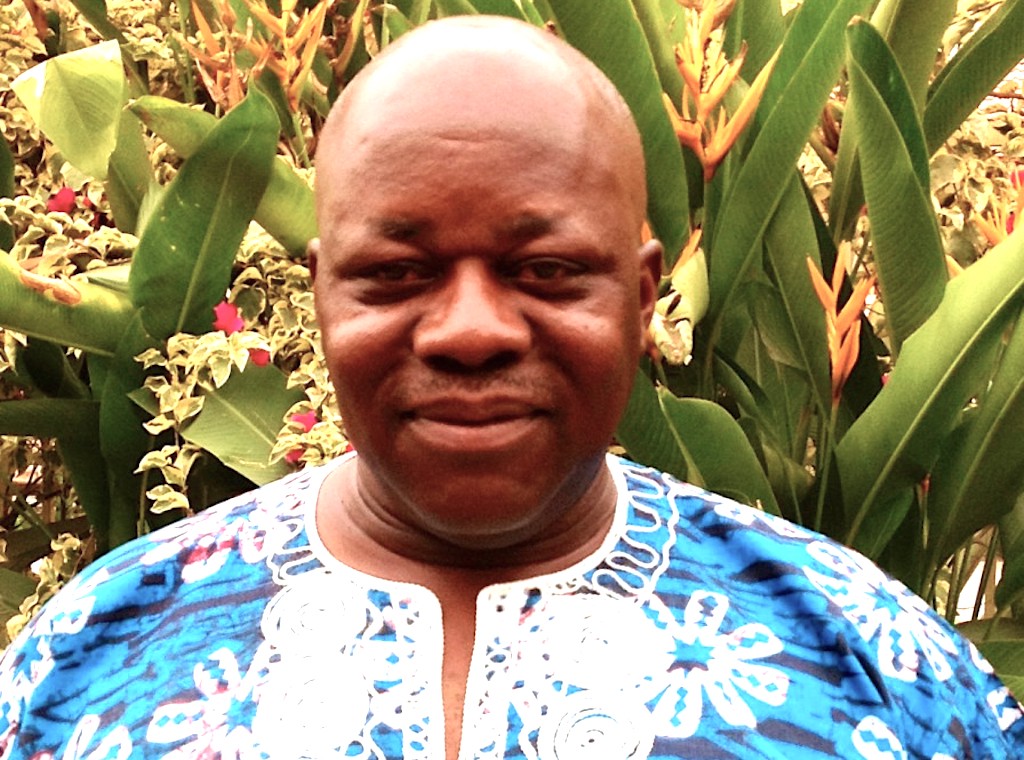The project’s objective was to use cross breeding between Maradi red and southern dwarf to produce goats that would provide improved meat and mild yields, while surviving well in every part of the country and having a high level of trypanotolerance. Ahmadu Bello University set up a cross breeding centre in Ubiaja, Edo State to produce the Nigerian goat. The project was steered by NAPRI’s Small Ruminant Research Programme, which has vast experience in breeding, selecting, and supplying improved males to farmers.
This week, I wanted to write again on the recent killings amongst Nigerians on the basis of ethno-religious divides but felt a deep sense of fatigue. I have been doing it for decades and the problems are getting worse, not better. Fed up with the Nigerian humans, I thought I should write on the easier task of unifying our goats. The idea was from our houseworker who just lost a relation and was directed to provide nine goats for the funeral ceremony. She told me that the instruction came with a clear conditionality – the goats must be proper southern goats, and northern goats will not be accepted. Sigh. Nigerians!
Then I remembered that my university in Zaria, Ahmadu Bello, had a scientific project in the 1980s to produce a Nigerian goat by cross breeding the southern and northern species. I called the university and asked for the number of the Director of the National Animal Production Research Institute (NAPRI) and asked him whether they have finally produced the Nigerian goat. The Director, Professor MY Hassan, responded that he had no idea what I was talking about (he might also have thought that I was nuts, as he does not know me and my sometimes-funny questions). I explained that I was a lecturer in the university in the 1980s and 1990s when NAPRI started a cross breeding programme to produce the Nigerian goat. He said he was not yet in the faculty at that time but would find out and get back to me.
I was pleasantly surprised at how conscientious Professor Hassan was. Four hours later, he sent me a brief explaining the project and ended the report with something we are so used to: it was a good promising project that had to close because government, which initiated it, stopped funding it. I called a few old NAPRI staff for additional information on the story of the Nigerian goat project which you, my dear readers, can enjoy today.
The project was to help address the ever-increasing demand for livestock production to cater for the nutritional needs of the rapidly growing human population in Nigeria. The results of the project were promising but then, the sponsor – the Directorate of Food, Roads and Rural Infrastructure under the Babangida Administration – was scrapped, and with the cessation of funding, the unified Nigerian goat died the normal Nigerian death.
The Nigerian goat community is divided into two distinct identities that have difficulties co-existing in the same ecological space. In the South, you have the West African dwarf goat, which is indigenous to the forest zone. It is short, very meaty but does not produce much milk and is, above all, trypanotolerant. This means that it has the ability to survive and remain productive despite infection with trypanosomes, the parasites that cause trypanosomiasis (also known as sleeping sickness). It is not immune to the infection, but its bodies can effectively control the parasite’s development and limit the disease’s effects, particularly the anaemia caused.
The northern goat is found in the Sahel and Sudan savannah of Northern Nigeria and has a big, tall and lanky frame but does not have a lot of meat. Scientists call it the Maradi red goat and it is especially noted for its good skin, which has been a valuable export commodity for centuries. For five hundred years, the famous Moroccan leather exported all over the world from Morocco, was actually the Maradi red goat skin traded from Northern Nigeria across the desert. It is bred by households all over the region but also by Fulani cattle herdsmen, who appreciate its good milk yield. When they take it south during the dry season, they suffer a lot of loss because of its major drawback of poor resistance to trypanosomiasis. The Maradi red has also developed a high capacity to transform limited vegetation available in its poor diet to survive and indeed prosper.
The project’s objective was to use cross breeding between Maradi red and southern dwarf to produce goats that would provide improved meat and mild yields, while surviving well in every part of the country and having a high level of trypanotolerance. Ahmadu Bello University set up a cross breeding centre in Ubiaja, Edo State to produce the Nigerian goat. The project was steered by NAPRI’s Small Ruminant Research Programme, which has vast experience in breeding, selecting, and supplying improved males to farmers. The crossbred goats being both milk-producing and trypanotolerant, would be a valuable asset for sustainable milk production in the southern part of Nigeria, hence its location in the then Bendel State.
Nigeria has not been able to build on the gains of the Second National Development Plan and subsequently, planning itself became side-lined in the country. When the story of great projects started and abandoned by kleptocracies whose only interest have been in contracts and bribes is told, we will continue to lament as we confirm that projects are part of our national sports. Nigerians, should we revive the unified goat project?
The project was to help address the ever-increasing demand for livestock production to cater for the nutritional needs of the rapidly growing human population in Nigeria. The results of the project were promising but then, the sponsor – the Directorate of Food, Roads and Rural Infrastructure under the Babangida Administration – was scrapped, and with the cessation of funding, the unified Nigerian goat died the normal Nigerian death.
The Nigerian State in very good at initiating great projects that would address the needs of the country. Unfortunately, both planning and public administration have collapsed and most projects that are initiated collapse before their objectives are achieved. The Ajaokuta Iron and Steel project is maybe the most famous example that could have set us up on the path to industrialisation decades ago, but which remains in shambles.
Nigeria has not been able to build on the gains of the Second National Development Plan and subsequently, planning itself became side-lined in the country. When the story of great projects started and abandoned by kleptocracies whose only interest have been in contracts and bribes is told, we will continue to lament as we confirm that projects are part of our national sports. Nigerians, should we revive the unified goat project?
A professor of Political Science and development consultant/expert, Jibrin Ibrahim is a Senior Fellow of the Centre for Democracy and Development, and Chair of the Editorial Board of PREMIUM TIMES.
Support PREMIUM TIMES’ journalism of integrity and credibility
At Premium Times, we firmly believe in the importance of high-quality journalism. Recognizing that not everyone can afford costly news subscriptions, we are dedicated to delivering meticulously researched, fact-checked news that remains freely accessible to all.
Whether you turn to Premium Times for daily updates, in-depth investigations into pressing national issues, or entertaining trending stories, we value your readership.
It’s essential to acknowledge that news production incurs expenses, and we take pride in never placing our stories behind a prohibitive paywall.
Would you consider supporting us with a modest contribution on a monthly basis to help maintain our commitment to free, accessible news?
TEXT AD: Call Willie – +2348098788999





